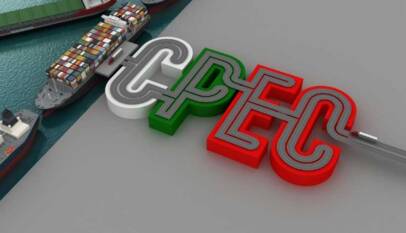Pakistan Railway sends PC-I of $9.2 billion to the Planning Commission
Ministry of Railways has dispatched a summary of $9.249 billion to the Planning Commission for the PC-1 of restoration and up-gradation of Main Line-I (ML-I) railway project under the CPEC. ML-I up-gradation project will not only increase the speed of trains to 160 KM per hour but also raise the number of trains up to 30 by 2024. With the acceptance of PC-I, the first phase of Karachi-Peshawar Railway Project will be concluded in the next four years. However, the second and third phases will take seven years to completely restore and modernise the Pakistan railway network.
LAHORE: The Ministry of Railways has sent a summary of $9.249 billion to the Planning Commission for PC-1 of expansion and reconstruction of existing line (ML-1) project related to the China-Pakistan Economic Corridor (CPEC).
After the approval of PC-1, phase 1 is expected to be completed in four years, phase 2 in five years and phase 3 will be completed in seven years. China will be providing the loan for the project for 30 years.
After CPEC, the speed of trains will be 160 kilometres per hour and the number of passenger trains will also be increased to 30 by 2024, and 40 by 2030.
Similarly, the number of cargo trains will be 18 by 2024 and 30 by 2030. The first PC-1 was sent to the Planning Commission in 2016 and three years were wasted waiting for approval due to some objections.
The CPEC ML-1 will pave the way for a Karachi-Peshawar track stretching 1,872 kilometres while the speed of the train would be 160 kilometres per hour. A summary for speed up-gradation of trains will also be sent to the Planning Commission.
Around $2.368 billion will be spent on CPEC project phase-1, while phase 2 will cost $3.267 billion and phase 3 will cost around $3.676 billion.
The CPEC project head in the ministry of railways, Basharat Waheed, has prepared the feasibility report and has sent it to Planning commission and the government of China.
In phase 1, the Kaluwal track will be upgraded to 52 kilometres along with the construction of a dual track. The track between Lala Musa to Rawalpindi will be upgraded while the track from Peshawar to Naushehra and the railway Walton academy will be upgraded.
It has also been decided that the distance of 183 kilometres between Rohri and Nawabshah will be covered by upgrading the speed of the train to 160 kilometres per hour.
In phase 2 the 339 kilometre-long track between Multan and Lahore will also be upgraded to run trains up to a speed of 160 kilometres per hour.
A new track will be constructed between Lahore and Lala Musa while the 182 kilometre track between Keamari to Hyderabad will also be upgraded, alongside constructing a dry port in Havelian.
In phase 3, a new track will be constructed besides upgrading the 174 kilometre track between Rawalpindi and Peshawar. The upgrading of 749 kilometre double track between Multan and Hyderabad, the purchase of locomotives and cargo carriages is included in this phase.
Tenders will be called upon after the approval of the PC-1, whose timeframe will be set for three months and afterwards the project will be implemented fully.
Previously, this project was delayed for three years. A summary has been sent once again to the Planning Commission for approval. If any objection is raised by the commission, it is feared that the project will be further delayed.
CPEC’s Success Story: $25 Billion Invested Across 38 Completed Projects
ISLAMABAD: A total of 38 projects worth over $25 billion have been completed and 23 develo…












